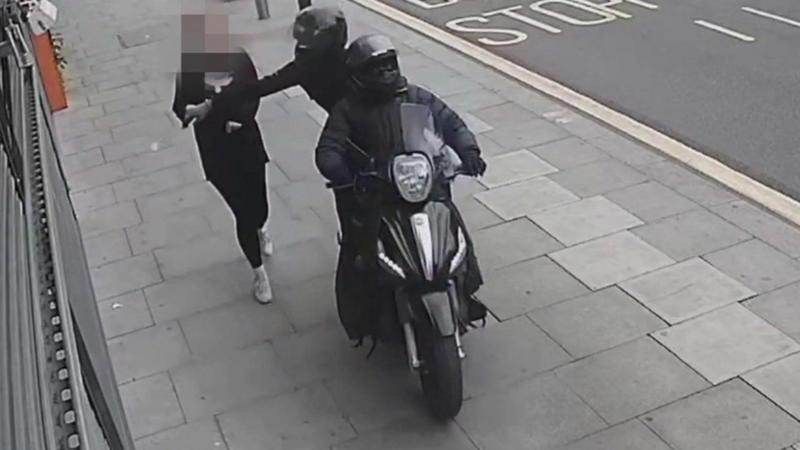A recent crackdown on the widespread crime of mobile phone theft in London has led to the arrest of 230 individuals by the Metropolitan Police over the past week.
In its ongoing efforts to combat what it describes as the “scourge of mobile phone crime,” the police force has also confiscated over 1,000 stolen devices.
To address this issue, the Met has positioned undercover officers in high-crime areas, such as Westminster and the West End, while employing tracking technology to recover stolen phones and apprehend offenders.
The police indicated that their efforts have been intensified to tackle an estimated £50 million annual market for stolen phones in the city, with a focus on those involved in theft, handling, and distribution of these devices.
This initiative coincided with a commitment from both law enforcement and tech companies to collaborate more closely in fighting smartphone theft.
During a summit held on Thursday, Home Secretary Yvette Cooper called on tech giants like Apple, Samsung, and Google to cooperate with police in enhancing anti-theft protections and cultivating a market where stolen smartphones are rendered nearly worthless to thieves.
Richard, a recent victim of theft, shared his experience with the BBC, expressing that the incident left him feeling “uncomfortably anxious.” He recounted walking through Highbury Fields when a person dressed entirely in black, riding an e-bike, snatched his phone from his grasp.
“It’s maddening because that’s a common spot for these incidents. I always advise people to be vigilant, but I momentarily let my guard down and now my phone is gone,” he remarked.
Initially feeling anger, Richard’s worries quickly shifted to the possibility of the thief accessing his banking information, although fortunately that did not happen.
He was taken aback by the police’s response to his report of the theft. Officers came to his residence and utilized a tracking device, revealing that his phone had been taken to a repair shop where previous criminal activities had been identified.
Despite the investigation, recovery of the phone was not possible.
Richard’s experience with law enforcement contrasts sharply with the struggles reported by other Londoners. For instance, a designer from Tottenham recounted feeling neglected by police after her phone was stolen in December and took it upon herself to utilize tracking technology to locate it.
Izzy Du successfully found her phone concealed in a hedge alongside six other stolen handsets.
Cdr Owain Richards of the Met stated, “We are witnessing phone thefts at a significant scale, driven by criminals profiting millions from selling stolen devices both locally and internationally. By enhancing our operations, we’re apprehending more offenders and safeguarding residents from having their phones taken.”
He emphasized the need for additional support from other agencies and the government, as well as for technology firms to create systems that prevent stolen phones from being reactivated.
The Met is advocating for the phone industry to disallow stolen devices from reconnecting to cloud services.
Recently, the application of tracking technology along with reports from victims led to the successful prosecution of four gang members who received a combined sentence of 18 years for handling over 5,000 stolen phones.
Mayor of London, Sir Sadiq Khan, commended the Met for leading focused initiatives to prevent and address mobile phone theft in the capital. He expressed his determination to eradicate the problem from London entirely.
The police also provided the following advice:


